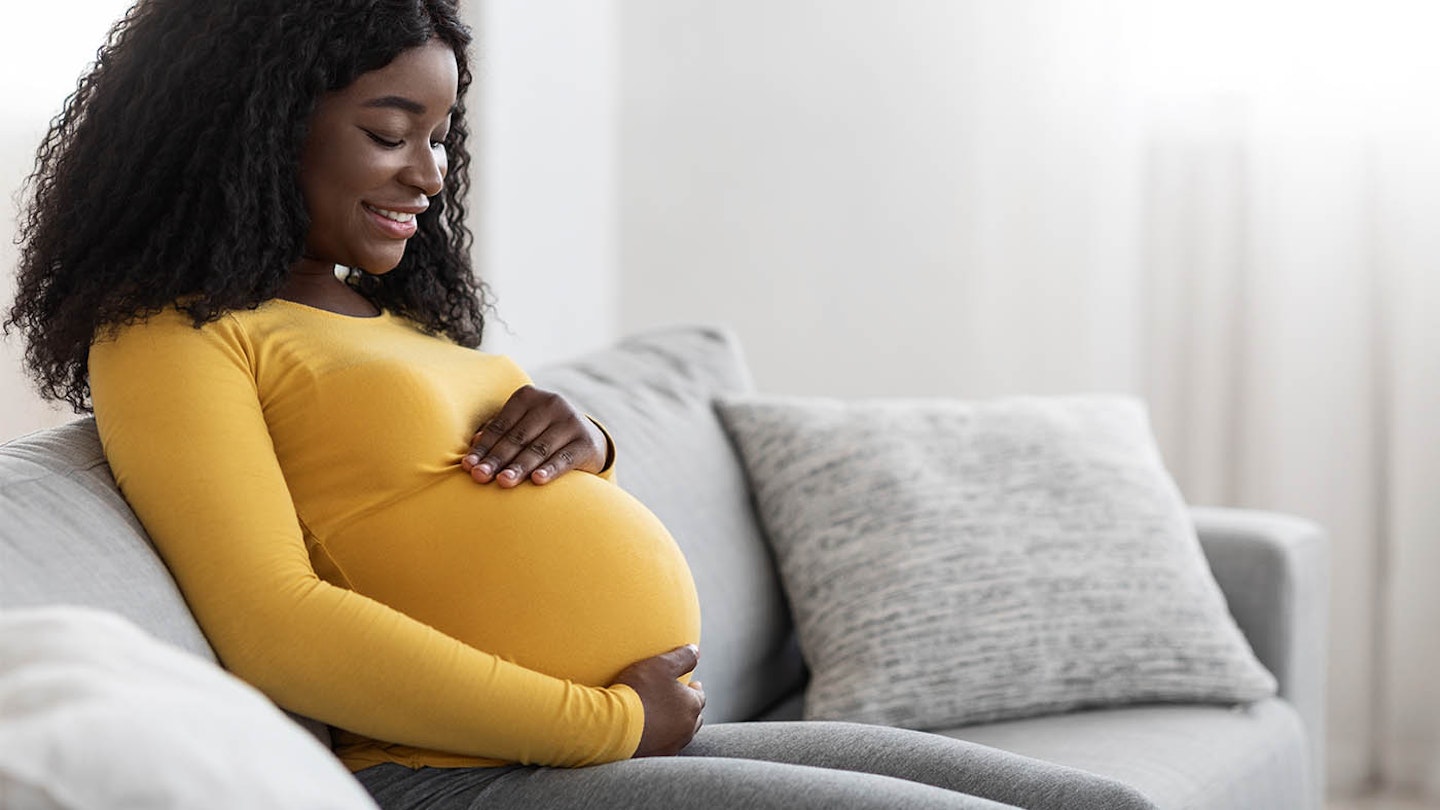Learning about exactly when and how your baby is growing in your womb has to be one of the most exciting parts of pregnancy. One part many parents are especially keen to know is when their baby can start to hear the world around them. And actually, it's earlier than you might think!
When can your baby hear in the womb?
Although (as with everything!) this can differ from baby to baby, your little one will start to hear when you are between 15 and 18 weeks pregnant.
What can your baby hear in the womb?
As well as the muted sounds of the outside world and your heartbeat, they'll also be able to hear any noises from your digestive system.
It is believed the clearest noise your baby will be able to hear is your voice (yay!) as the sound of it reverberates through your bones and your body which amplifies it. So keep having all those chats you've been having with your little bean. In fact, studies have found that your baby's heart rate increases when hearing the mother's voice, meaning they become more alert.
That's not to say your partner should feel left out though as your baby will be able to recognise other voices they hear often in utero so it's well worth encouraging them to talk, read and even sing to your bump.
What does it sound like in the womb?
As your baby is surrounded by amniotic fluid (not to mention the layers of your body plus the amniotic sac), any sounds that they do hear is generally muffled, a little like white noise, even when those little ears are fully developed.
Can I play music to my baby?
Whether it’s The Beatles, Beyonce or Bach, you can absolutely enjoy acquainting your baby with your favourite music.
While this is a great excuse to introduce them to your music collection, you should steer clear of putting headphones on your bump.
"Your baby’s surrounded by fluid in your womb so sound vibrates through that," explains Denyse Kirkby, midwifery teacher and author of My Mini Midwife. "Now imagine how intense that’ll be if the music’s being played directly into your bump through a speaker."
She can hear all that Taylor Swift just fine anyway, so why not introduce some more additions to your bump playlist?

The calming tune
Songs that relax you help lower your blood pressure and anxiety, which are both beneficial for your baby’s health, too. And some tunes are scientifically shown to do this better than others.
"Certain songs are described as anxiolytic, which basically means they have a pace and rhythm that helps settle your brainwaves into a relaxed state," says Denyse.
An example is the song Weightless by Marconi Union, which was developed by scientists with 60 beats per minute (bpm) – the optimum for settling your mind.
Our pick: Albatross by Fleetwood Mac with 66bpm.
The happy track
As well as mellow songs to chill you out, ones that get you up and moving are great, too – basically, anything you have a positive association with.
"Your own feel-good songs can be useful for a birth playlist, too," says Denyse. "I’ve spoken to women who downloaded songs recommended by friends for labour, but ended up skipping over them on the day in favour of ones that meant more personally."
You may also find your food preference isn’t the only taste that changes in pregnancy. "One mum-to-be I knew found she suddenly felt sick hearing her favourite Phil Collins tracks, and wanted to listen to loads of Mozart instead," says Denyse.
Our pick: Happy by Pharrell Williams. Sure, it’s in the name, but it's definitely one that makes our Saturday morning house clear up more fun.
The lullaby
OK, we’re not suggesting you send yourself crazy with Ba Ba Black Sheep on the commute, but it may be useful to listen to the odd lullaby now.
The University of Helsinki research shows babies recognise songs they heard in the womb for up to four months after birth, so getting her used to a soothing lullaby could be useful for helping her sleep when she’s born.
Our pick: Twinkle Twinkle – the one used in the Finnish study.
Popular articles to read next
Your hospital bag checklist: essentials to pack for labour and beyond
